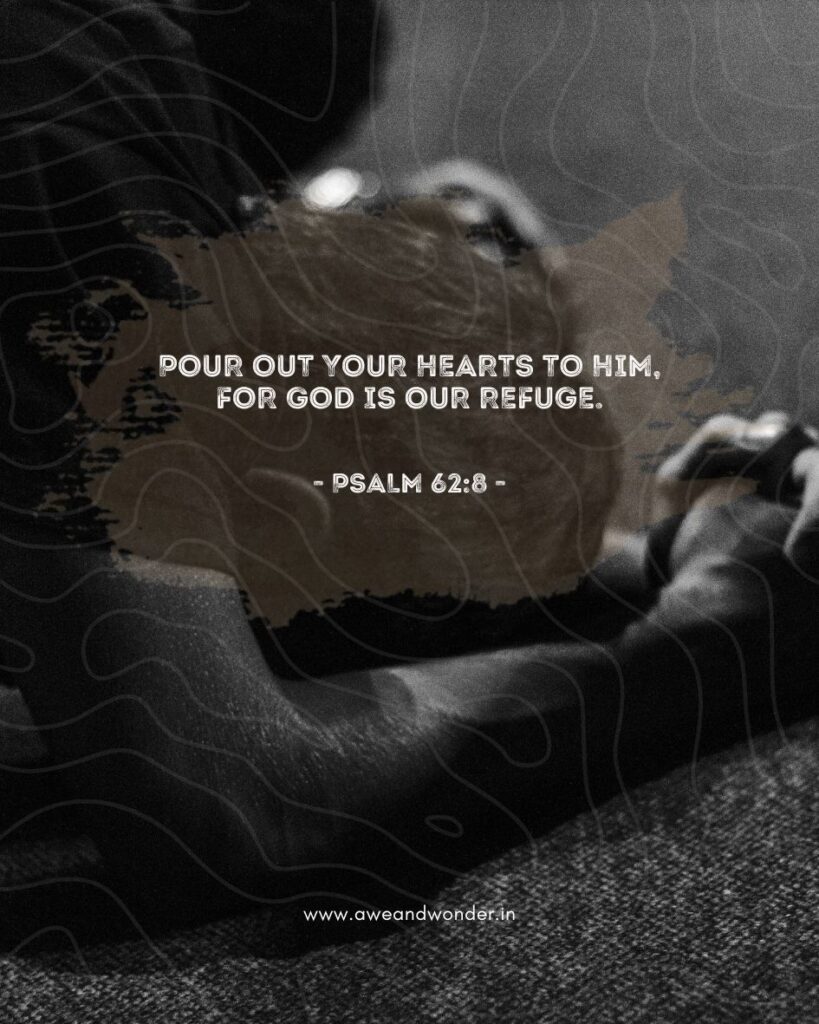There is a brand of spirituality that says true prayer is about quiet and contemplation. Sometimes the implication is that the more spiritual you are, the more calm and composed you will be.
It is not true.
Hannah’s prayer (in 1 Samuel 1) – which is a prayer, as we’ll see, that God answers – arises from deep anguish (v10), bitter weeping (v10), misery (v11), being deeply troubled (v15), great anguish and grief (v16).
If you are experiencing anguish or bitterness, then you are in a good place to pray well! Perhaps your problems mean your mind is all over the place, so you find it hard to concentrate in prayer. But actually that is the kind of condition that produces good praying. Prayer is not a technique we need to master. It is “pouring out [your] soul to the Lord” (v 15).
One of the main reasons we do not pray more is that we do not feel the need to pray.
We think we can manage without God, and so our prayers end up as a duty to perform, as one of the options in our busy day.
Prayer was not a duty or an option for Hannah (1 Samuel 1)! She did not get up from the meal because she had realised that she had not had her quiet time that day.
It was the cry of an anguished soul.
The main image Jesus gives of prayer is a child asking her father for help. And three-year-olds do not ask for things in a quiet and contemplative way! They insist, they shout, they clamour, they persist.
There are children who are quiet. If a child cries and no one ever comes, then eventually they stop crying. There are orphanages where children have been neglected to the point where an eerie silence hangs over the dormitories.
The point is this: the cry of a child is a cry of faith. It reflects their belief that there is someone out there who hears them and responds to them. Of course, they are also selfish, and often we struggle to work out what they want, so it can get fraught! But it is essentially a cry of faith. And the cry of prayer is a cry of faith. It arises from the belief that God is a Father who is able (powerful enough) and willing (loving enough) to answer.
What creates great praying? A deep sense of our need and a deep sense of God’s care.
-Tim Chester, 1 Samuel For You








